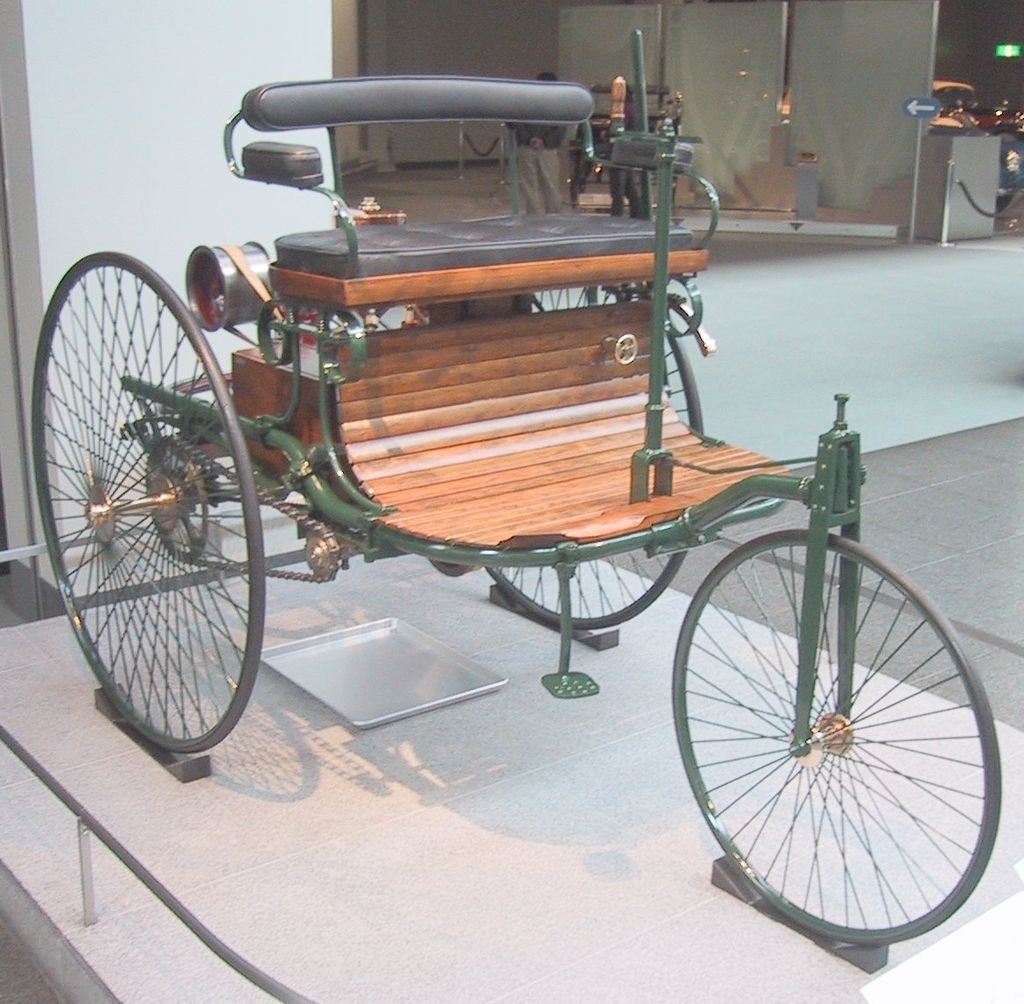On January 29, 1886, German engineer Carl Benz made history by patenting the “Benz Patent-Motorwagen,” which is widely recognized as the first modern automobile. This groundbreaking invention consisted of a three-wheeled vehicle powered by an internal combustion engine, and it marked a pivotal moment in the history of transportation.
Before Benz’s invention, transportation primarily relied on animal power, such as horses and horse-drawn carriages. While steam-powered vehicles had been experimented with prior to Benz’s patent, they were bulky, inefficient, and impractical for everyday use. Benz’s creation, on the other hand, was a compact and efficient vehicle that laid the foundation for the modern automotive industry.
The Benz Patent-Motorwagen featured several innovative components that set it apart from previous attempts at motorized transportation. It was equipped with a single-cylinder, four-stroke engine that produced 0.75 horsepower, allowing the vehicle to reach a top speed of approximately 10 miles per hour. The engine was fueled by gasoline, which was a relatively new and promising energy source at the time.
One of the key aspects of Benz’s invention was its use of an internal combustion engine. This type of engine converted the energy from burning fuel into mechanical power, providing a more efficient and practical means of propulsion. The internal combustion engine would go on to become the standard power source for automobiles, and its development revolutionized transportation.
The Benz Patent-Motorwagen also featured other notable design elements. It had a tubular steel frame, which provided strength and durability while keeping the vehicle lightweight. The three-wheeled configuration allowed for maneuverability and ease of turning. Additionally, the vehicle had a differential gear system, which ensured that power was distributed evenly to the rear wheels.
Although the Benz Patent-Motorwagen was a significant technological advancement, it faced initial skepticism and limited commercial success. In the early years, the automobile was primarily seen as a curiosity rather than a practical mode of transportation. However, as the technology improved and the benefits of automobiles became more apparent, their popularity began to grow.
Benz’s invention had far-reaching effects on society and the economy. The introduction of automobiles revolutionized transportation, providing individuals with a newfound freedom and flexibility in their daily lives. It enabled people to travel longer distances in shorter amounts of time, opening up opportunities for business, leisure, and exploration. The automotive industry also created numerous job opportunities and stimulated economic growth.
Over time, advancements in automobile technology led to the production of more reliable and affordable vehicles. As the industry expanded, other manufacturers emerged, further fueling innovation and competition. Today, the automotive industry is a global powerhouse, with millions of vehicles being produced and sold worldwide each year.
The impact of Carl Benz’s invention can still be felt today. The modern automobile has become an integral part of our lives, facilitating transportation and shaping our cities and infrastructure. It has also contributed to environmental concerns, prompting the development of more sustainable and efficient vehicles.
In conclusion, on January 29, 1886, Carl Benz patented the Benz Patent-Motorwagen, marking the birth of the first modern automobile. This invention revolutionized transportation, laying the foundation for the automotive industry as we know it today. The Benz Patent-Motorwagen’s internal combustion engine and innovative design elements paved the way for future advancements in automobile technology. Carl Benz’s contribution to the world of transportation is undeniable, and his invention continues to shape our lives in countless ways.
SEO Excerpt:
On January 29, 1886, Carl Benz patented the first modern automobile, the Benz Patent-Motorwagen. This groundbreaking invention powered by an internal combustion engine revolutionized transportation and laid the foundation for the automotive industry. Learn more about the historical significance of this event and its impact on society and the economy.

